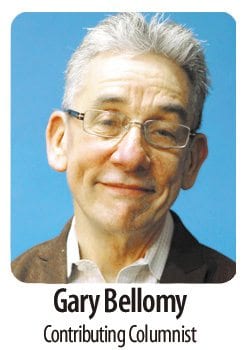 Death has no clear reason. It either interrupts a much-cherished life that the newly-deceased was enjoying, or it ends a protracted period of physical suffering or mental anguish. In either case, death is permanent.
Death has no clear reason. It either interrupts a much-cherished life that the newly-deceased was enjoying, or it ends a protracted period of physical suffering or mental anguish. In either case, death is permanent.
The old adage that deaths comes in threes resonates with me. I have witnessed the death people I consider friends. And I have participated in the decline and eventual demises of my parents, all of their generation and generations before.
But for me, the final category is the most difficult to process: the death of our intimate partners or spouses and our children. I put these in the same category, because although the nature and the intensity of those relationships differ, the loss is quite the same. Both take from you the very meaning of your own reality. Who you are and who they were wound together intricately, and when you are left behind, you have to find new life because the life you shared with them evaporated the exact moment they took their final breath.
I am well versed in the nuances of death. AIDS gave me that knowledge. So many people of all ages and orientations learned the harsh lessons that the ravages of AIDS-related death handed out in those dark days. People around the world were fast-forwarded to an encounter with the ultimate ending.
I’ve enjoyed an extended break from the realities of death in recent years. My last surviving uncle passed about five years ago. My friends and remaining relatives are in pretty good health. My husband, Will, is indestructible and will find company with the cockroaches after the eventual nuclear holocaust.
I have almost felt insulated.
Then last week I heard that a woman from my high school graduating class had died. Her passing was sad but not so unexpected. She died before her time, but the progression has begun. Her death felt familiar to me.
I moved to Dallas from San Francisco at the onset of the AIDS epidemic, and my partner at that time became sick very soon after we moved here. When he died, I found myself isolated. I had been entirely involved in caring for him and had no friends other than my co-workers.
I both amused and tortured myself by picking up a copy of the San Francisco gay newspaper each week, reading the obituaries of those who had died that week. There was always a person I knew, usually an acquaintance rather than a close friend. It was a morbid habit, yes.
But it chronicled the devastation for me.
And now, that role of the night watchman is beginning again. This time though, it brings mostly pleasant memories of those long-ago times. But it also reminds me that the sunset has begun.
There are lessons I learned from the past that will serve as important guidelines for how I process death as I age. I think that all of those friends, acquaintances and soulmates that were taken from me so young have left me stronger. I’m not so afraid. I am not enraged. I do not feel like I have to carry such a burden.
I have forgiven myself. I have moved on.
I did not do a great job of processing death back then. I knew a lot of good people in those days who became ill and met death early.
Some of them I sat with as their deaths approached. I visited a few but sometimes just abruptly stopped visiting. I stopped calling, too.
And I became numb. I cared when they died, but I did not register the loss. I shut down the way very old people do when they lose their entire generation.
These days, I’m involved with an organization called Educare that was created to address that exact situation. It’s called Compassion Fatigue, and it is the way we cope.
There are methods to relieve the effects of Compassion Fatigue; methods I could have used in the past and that I will use in the present as
I move into this next chapter.
Each time, I plan to be present. I plan to let each loss wash over me. I plan to be devastated. I plan to recover. That is the price for our humanity. I want to experience each tender moment.











